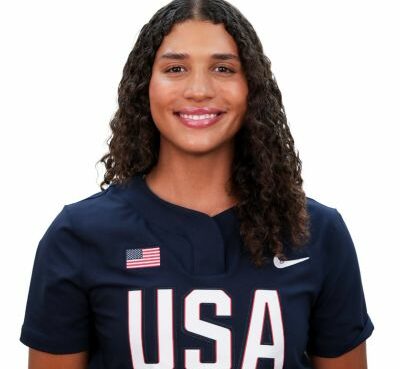James Blake, a former tennis player, hails from a mixed-ethnic household. His mother, Betty Blake, an English lady, has already spoken out against racism in the United States after an awful experience with her son in 2015. An NYPD cop shoved James Blake to the ground, yet the former tennis star eventually got an apology since he had done nothing wrong. Betty and many others thought it was a racially motivated assault. The former World No.4 denied that the event was racially motivated, but claimed it left him feeling “raw.” The American tennis player began playing tennis at an early age, and it was his father who taught him the sport.
His father, Thomas Blake Sr., died in 2004 from stomach cancer. The former Davis Cup champion founded the James Blake Foundation, which is committed to cancer research. The 44-year-old former tennis star recently appeared in Pickleball Slam 2, with other tennis greats. Steff Graf and Andre Agassi won the Pickleball Slam 2 on Sunday, defeating John McEnroe and Maria Sharapova respectively.
James Blake’s Ethnicity: Where Is He From?
James Blake, a former American tennis player, is of mixed heritage. Blake was reared in Yonkers, New York, by his African-American father and English mother. Blake’s mother, Betty Blake (née Misseldine), was born and reared in Banbury, Oxfordshire. She traveled to the United States at the age of 17 and met James’ father, Thomas Blake Sr.

Blake once said that he had previously visited Banbury to see some relatives on his mother’s side. In an interview with the Independent, Blake said that he met a woman in the bar who recalled his mother. He went on to say that when his mother visits England, she can’t help but grin. When asked whether he felt empathy for his mother’s birthplace, Blake responded he felt at ease with English culture.
In 2015, Blake’s mother, Betty, came out against racism in America. The event that inspired her to speak out was an assault on her kid by an NYPD officer. Betty wrote in the New York Daily News about an incident in which an NYPD officer attacked her son outside the Grand Hyatt in Manhattan. Blake was handcuffed, arrested, and jailed. The cops later realized they were in the wrong.
She stated, “I think the vast majority of people who read this narrative understand that it is about race. Racism seems to have no end in our nation, and it seems to be getting worse.” Betty saw segregation taking place in real-time in the United States. When she and Thomas resided in Missouri, segregation was still legal. Betty expressed regret in her poem for exposing her kid to a world where such events may occur.
James Blake Parents
James Blake’s parents, Thomas Blake Sr. and Betty Blake, had two tennis-playing boys. Thomas Blake Sr. died in June 2004 after a protracted fight with stomach cancer. Thomas and Betty met on a tennis court, and Thomas was the one who convinced his son to take up the racquet. In an interview, James said that he and his brother were reared on tennis courts.
James stated his parents would take them to tennis courts because he thought they were too cheap to pay for babysitters. Thomas Sr. learned to play tennis while in the Air Force. Betty outplayed her future spouse on their first encounter in Yonkers’ Fay Park. Despite educating their boys to play tennis, the couple was stringent about their children’s academics. This was one of the reasons the lads were able to attend Havard.

In an interview, James said that he struggled to persuade his father to allow him to pursue a professional tennis career. However, after Thomas Sr. learned his kid was excellent, he permitted him to do so. Thomas Sr. worked as a sales manager at 3M when he died. For a long time, James kept any discussion he had with his father during his finals days private. He did not even inform his mother, Betty, about it.
He finally discussed it three years after his father’s death. In 2010, James’ mother, Betty, wrote a book titled Mix it Up, Make it Nice: Secrets of a Tennis Mom. Betty spent four years writing the book, in which she discusses family values, her two sons’ paths to become great tennis players and racial relations. Betty once wrote in the New York Daily News that as a Caucasian, she couldn’t fully understand an African-American’s situation in the United States.




